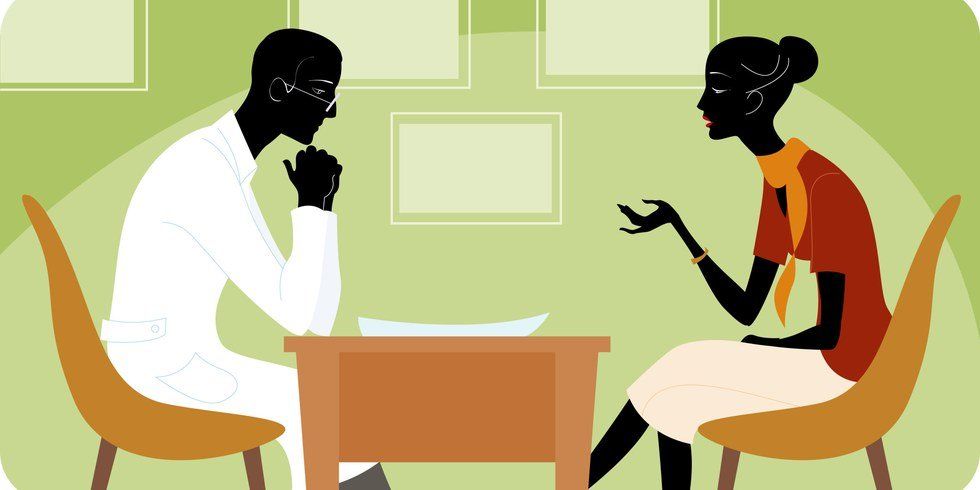Therapy is often cast aside as something that is “not for everyone” when it comes to dealing with personal, emotional, and/or mental issues. While this may ring true for some people, the great danger of this assumption that I have experienced is that because people think that therapy isn’t for everyone, no one thinks therapy is for them. And this is just one of the many ways in which our society has gone totally wrong when it comes to treating and dealing with mental health.
In 2012, the American Psychological Association published a review of research studies in which they concluded that, “Consumers need better understanding of and access to psychological and behavioral health care” and that psychotherapy (your classic form of therapy in which you see a certified therapist on a weekly basis) is effective for most mental and physical conditions and is effective for most population groups. They cited over 50 studies to support these assertions.
Despite the support of science, therapy is largely underutilized and cast aside not because people don’t try therapy, but because they come into therapy with a plethora of misconceptions that lead them to quit therapy before it starts to become effective. This has led to the perpetuation of therapy’s reputation as ineffective and unnecessary, when the exact opposite couldn’t be more true.
One of the largest misconceptions people carry about therapy is they only need to go to a few sessions and then bam, magic, they're cured! In actuality, how long it takes for therapy to become effective depends on the person and the situation. As the APA says, on rare occasions one session can be the fix-all, but more often than not, it takes at least 6 months for the benefits of therapy to kick in. And that’s if you don’t fall prey to another misconception: that the therapist does all the work to figure out what’s wrong with you and help you reach the classic Hollywood breakthrough.
Therapy is hard. It takes a lot of work and dedication from both the patient and the therapist. And sometimes, you have to try a couple different therapists to find the right one for you. You also have to be willing to open up and be willing to try different techniques or coping mechanisms that may feel silly or weird. You have to be open-minded to suggestions or comments the therapist may have even if they make you unhappy, because keep in mind, they went to college and got certified in this profession (a fact a lot of people tend to forget).
My theory behind the great misconception of therapy’s alleged ease is that people think that overall recovery and healing from something bad that happened to you, whether it be the death of a loved one, a mental illness, or some other form of pain or loss, is purely a happy process. And people expect that you start feeling better right away. Recovery and healing can feel happy at times, but it is not exclusively happy. Recovery is a rollercoaster of complex emotions and feelings, and it is a process that takes time.
The key to recovery is realizing that it isn't easy, but it's possible, and you will feel better with time as long as you get the help you need. You have to make it through the bad days to get the good ones. You have to let yourself feel what you want to feel. If you feel sad, be sad, don't push that feeling away because you feel like you shouldn't be sad. Good and bad emotions and feelings are part of recovery.
Recovery is, in and of itself, a journey. Recovery is just as much about moving on from what happened to you as it is getting through the process itself. You have to let yourself feel every feeling that comes with moving on, and you have to be patient. But most importantly, you have to realize all the good in your life. Use the bad that has happened to you to realize how lucky you are now, and to give yourself hope that someday you will feel better As Charlie, the protagonist in novel The Perks of Being a Wallflower who is deeply depressed and suicidal over the death of his Aunt Helen, and who eventually realizes that his Aunt raped him as a kid, says when he begins his recovery, “I can see it. This one moment when you know you’re not a sad story, you are alive.”
You have to realize that you will heal someday.
I know this because I am in the process of recovering. I have been in weekly therapy sessions for over a year now and, at one point, was seeing two different therapists a week for different issues. At first, I felt ashamed and made dark jokes about my predicament. But eventually, I actually felt (and still feel) proud of myself for working so hard to feel better. I know I feel better eventually, but until then, I am willing to put in the work necessary to get there. We all move on, and we all heal eventually, you just have to give it time.





















